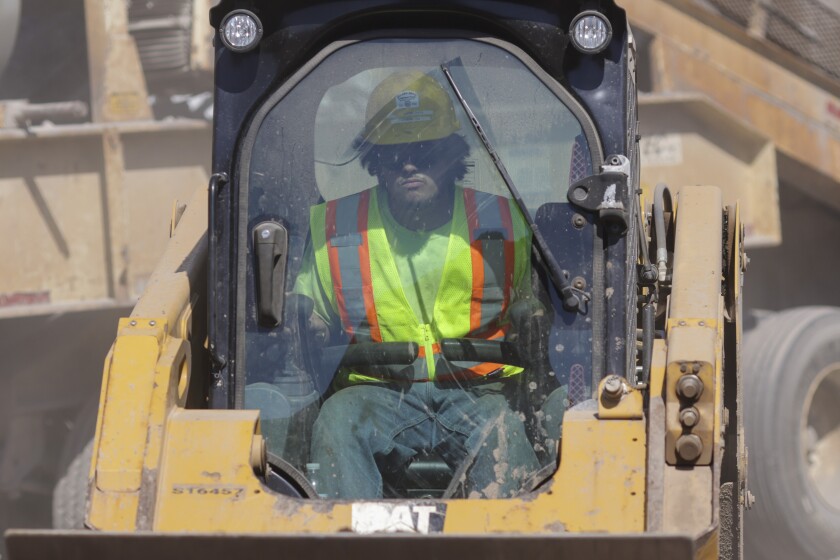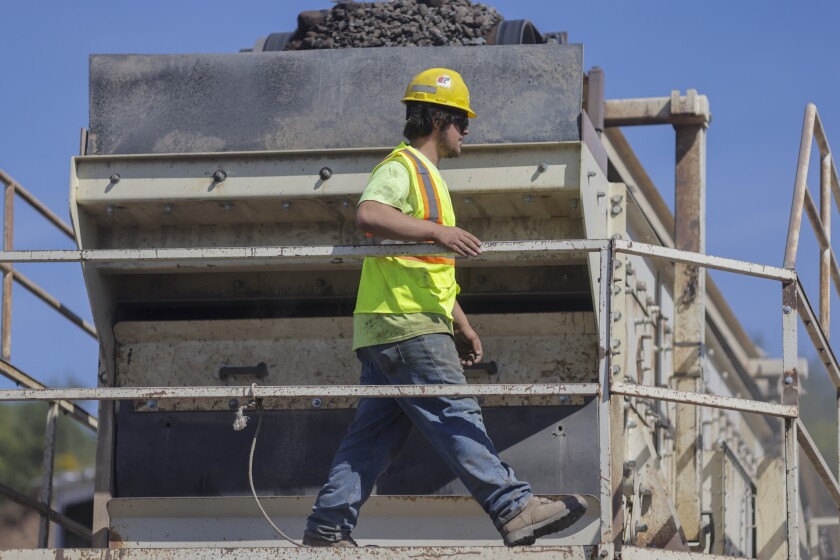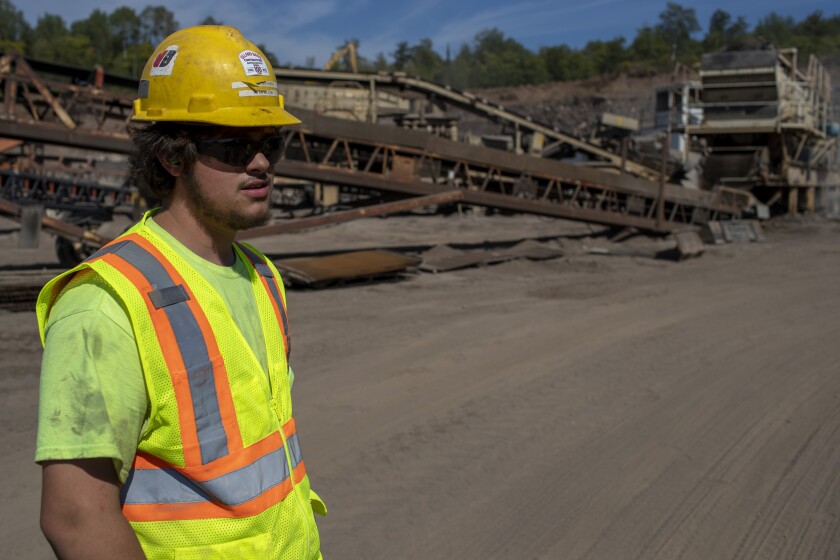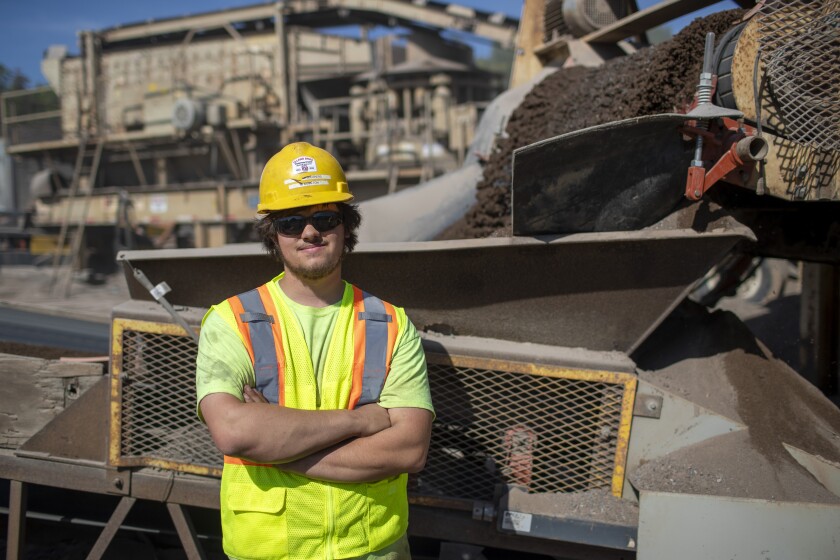DULUTH ‚Äî Ryan Milton had a full-time job about a week after he graduated from Northeast Range Õ·Õ·¬˛ª≠ in Babbitt last spring.
The 18-year-old has spent his summer as an oiler on a three-person team at a gravel pit north of Duluth, making sure that the massive, chugging machines there stay in working order as they crush and sort rocks into different consistencies for regional road projects.
ADVERTISEMENT
“I make big rocks small,” Milton joked during a free moment at work Wednesday.

Milton estimated he works about 60-70 hours each week, and that he’s earned about $25,000 before taxes since he started. Originally from Embarrass, Milton and a handful of other pit workers live in small trailers near the gravel pit's entrance.
The money, of course, appealed to him, but Milton also noted that other jobs in the same vein can fall to the wayside during the winter.

“You can’t put asphalt on the road all year and dig up roads all year, but what you can do all year is crush a rock,” Milton said. “Pretty much everywhere in the world, there’s going to be a need for rocks being crushed.”
Milton’s interest in heavy equipment began at a young age, and he said he didn’t want to head to college after he graduated from high school. His dad has worked the same sort of job for the last 20 or so years and helped Milton land the gig at the gravel pit, which is operated by Ulland Brothers contractors.
“It was kind of a thing where I was like, if I don’t like it, I can always change it,” Milton told the News Tribune.
Besides joyful rides in his grandpa‚Äôs front-loader and countless hours tinkering in the family garage, Milton got a start on his incipient career via a ‚Äúpathway‚Äù for budding operating engineers at the Minnesota Virtual Academy, an all-online K-12 school run by Houston Public Õ·Õ·¬˛ª≠s in southeastern Minnesota.
ADVERTISEMENT
About 350 miles north of Houston, Milton learned general maintenance techniques, grading and staking, and construction-grade math alongside required classes at his traditional high school. He said he believes the classes helped him pass the tests he needed to join the International Union of Operating Engineers Local 49. Milton said he had a job lined up at Ulland before he received his high school diploma.

The virtual academy enrolls K-12 students from across the state. It’s been a wing of Houston’s school district for 21 years. Per-student money from the state is the financial bread and butter for school districts across Minnesota, and Houston district leaders put the academy together to attract more students and keep the district’s doors open, according to Superintendent Mary Morem.
About 500 students attend Houston Public Õ·Õ·¬˛ª≠s in person, and another 1,600 or so attend the virtual academy.
The “pathways” within the academy are meant for students in grades 6-12, and they’re much newer than the virtual school — they’re in the same vein as the career “academies” that have sprung up across the region over the past few years. Students who pick a pathway at the virtual school take coursework designed to give them a taste of a future career in nursing, IT, marketing and other fields.
The operating engineers pathway that Milton took is run in conjunction with Local 49, whose members offer staff time and use of a Hinckley training center for pathway students.
A in March 2021 apportioned $100,000 to the Houston district so administrators there can reimburse school districts whose students opt for a virtual academy pathway part time. The aim is to avoid hampering those district’s finances if a student opts for a pathways class.

The same bill also requires Houston leaders to report to the Legislature on the program by January 2024.
ADVERTISEMENT
Morem said the academy’s pathways can help students even if they’re not considering the field a given pathway might point them toward.
“Even if you’re maybe going to be a welder, but it’s a construction class or it is a heavy equipment class, it might give you some knowledge that you might need when you are a welder for a pipeline or whatever,” she said. “I think it opens doors.”













